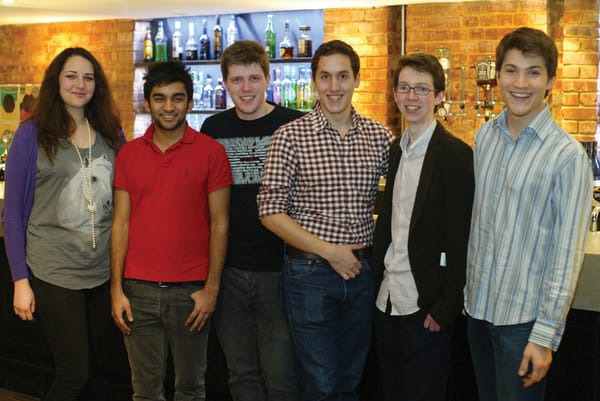A pat on the back for humanity
It’s good to see more and more gorillas finding employment as club bouncers
I’m not one for blowing my own trumpet, but sometimes when I look down on this sprawling metropolis of science and soccer, of museums and Metro newspapers, I think we can feel a modicum of pride. I’m not talking about just London though. It’s everyone, the whole human race! When I think about what we’ve achieved, I have to say that humanity’s pretty great.
And how did we find ourselves in this most envious position? Was it through strength? Um, no, we’re actually pretty weedy, especially compared to our distant cousins, the gorillas. They could easily rip your whole arm off. If species success was measured on strength alone, we’d barely get an honourable mention. But in reality, we are gracious winners. It’s good to see more and more gorillas finding employment as club bouncers.
Well, maybe it was our flighty feet that gave us the evolutionary edge? Again, not so. Humanity is the asthmatic kid of evolution, always getting picked last for P.E. – we’re not even in the same league as the likes of the leopard.
But there isn’t a secret order of leopard high elders controlling the sum of world politics behind the scenes (probably). How come? It is because, though we are not the fastest or the strongest, we are the smartest. From a little clump of tapioca-mush in our heads spring all of humanity’s achievements. This is why I think we’re pretty groovy; the entire sum of art, philosophy and science has arisen from a few thousand years of semi-random electrical discharges.
Soaking up mankind’s finest endeavours, I can almost forget that we’re little more than complex, over-complicated machines for replicating lengths of a sugar-base polymer.
It can be a bit of a downer to think that purpose of life is just to beget more life – no matter how fun the process may be. But then I realised, because E=mc2 and Michaelangelo’s David have no impact on passing on the genome, they are more significant, not less. Einstein, Monet, Nietzsche, Newton, Descartes. Undeniably great men but where are their children now? It is the fruit of our minds, not of our loins that allow us to achieve immortality. They allow us to leave a legacy in a language written in more than just A, G, C and T.
But our minds have a dark side also. With such a grand capacity to think, we are so vulnerable to over-thinking. We can take one event, one comment, and torture ourselves over its most absurd interpretations. This is the price for our mental agility; Mr Hyde to our otherwise fantastic Dr Jekyll.
And even when we’re thinking straight, our minds can be our sternest critics. We set impossible standards – the only ones worth reaching for – and crucify ourselves when we fail to reach them. We could be the brightest spark, but if we can’t please ourselves, then everything else is worthless. The reverse can be just as true; sickening sycophancy only builds up illusions of greatness.
But these are just blemishes on what is truly a beautiful mind. I am willing to pay in psychosis and neurosis for all we have gained, and have yet to gain, from this brilliant collection of electrical impulses and ion imbalances. Could a flagellar motor do that?
Think about it!








